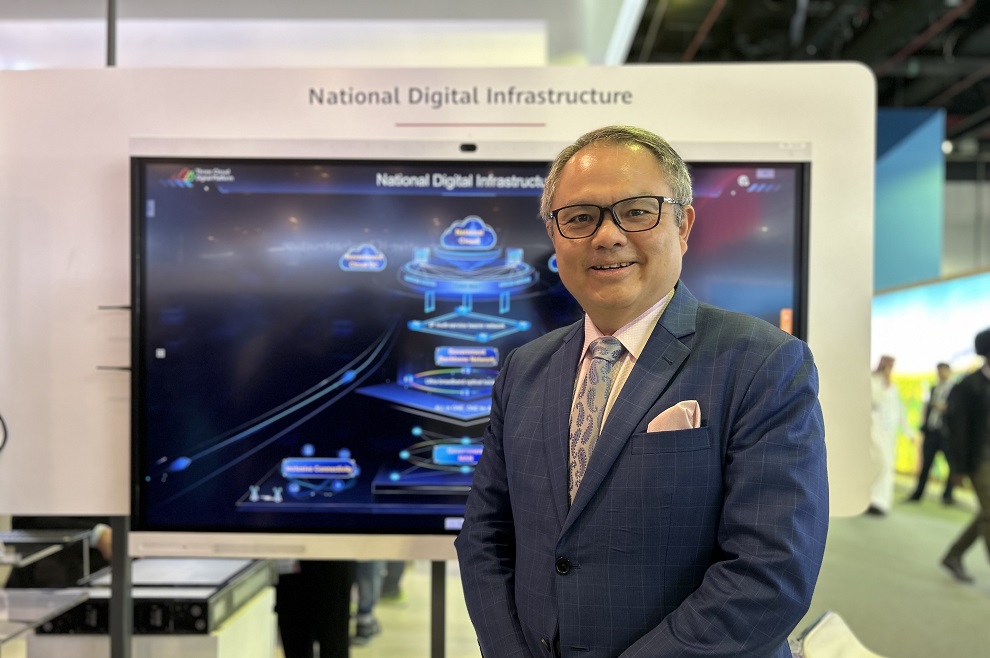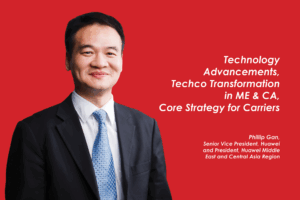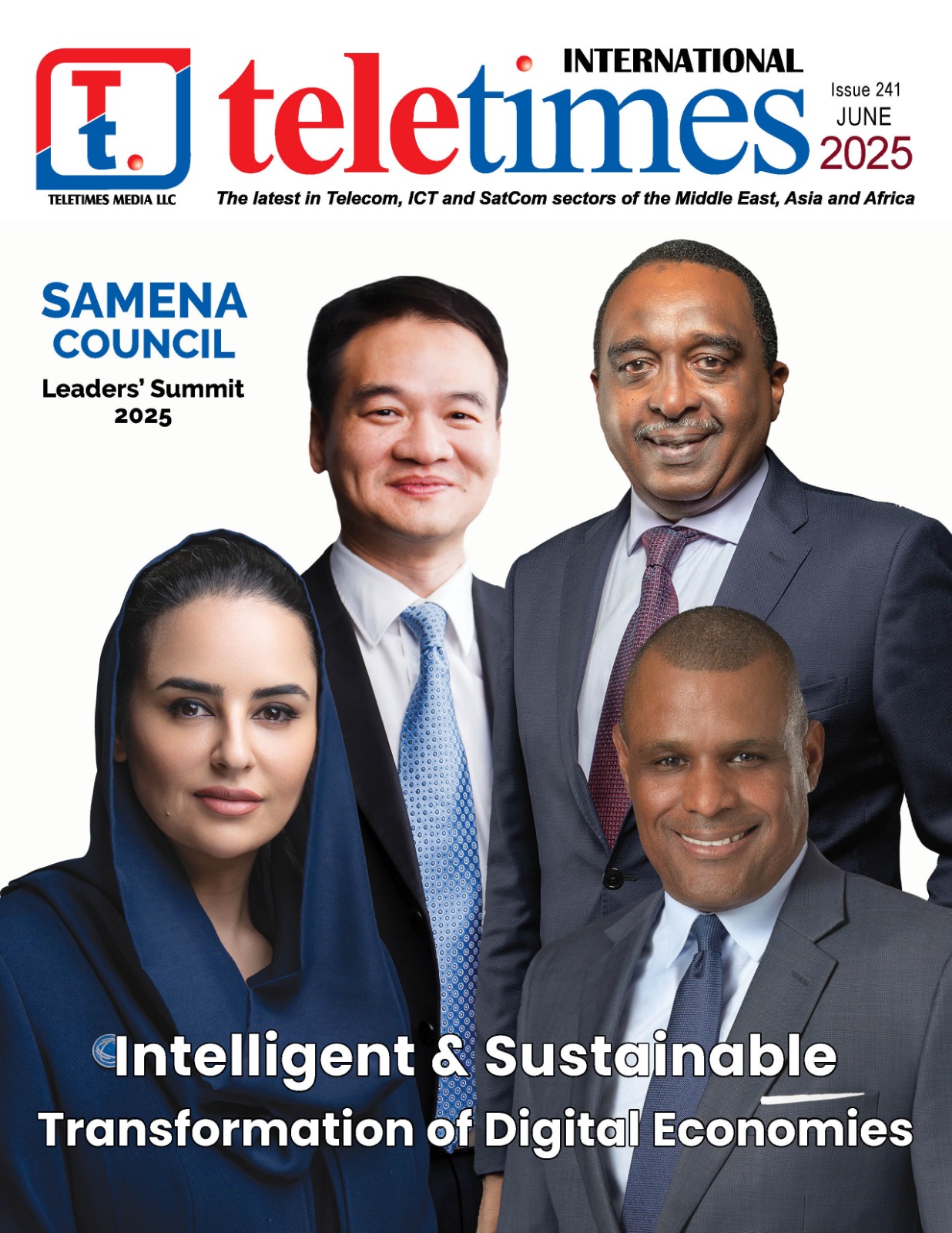Hong-Eng Koh, Global Chief Public Services Industry Scientists – Huawei Enterprise Group, talks to Teletimes about the evolving ICT landscape in the public sector and how this sector can better serve the public through technology
Khalid Athar: Could you please tell us a bit about your background and your role at Huawei?
Hong-Eng Koh: Thank you, Khalid, for taking the time to have this conversation. My name is Hong-Eng Koh, and I serve as the Global Chief Public Services Industry Scientist at Huawei’s headquarters. I am currently based in Singapore. Huawei operates with three main business groups: the Carrier Business Group, the Consumer Business Group, and the Enterprise Business Group, which is where I work. Within the Enterprise Business Group, we cater to various industries, with the public sector being one of the primary sectors of focus.
KA: Can you share a little bit more about your experience in the public sector and the group you are working with at Huawei?
HK: I started my career working for the Singaporean government about three decades ago. Subsequently, I held various government roles, including involvement in the early stages of government digital transformation. Afterward, I spent over 16 years working for an American company before joining Huawei eight years ago.
Within Huawei, I lead a team of industry experts, most of whom have extensive government experience worldwide. In the Enterprise Business Group, the public sector represents the largest revenue contributor globally. We serve government and public sector customers in over 100 countries, encompassing government agencies, education, healthcare, smart city initiatives, finance, social services, and more.
KA: What are some of the key trends you observe in the global public sector, particularly in terms of emerging technologies and government use cases?
HK: I’ve been a part of this journey for nearly 40 years, observing a shift from digitization to digitalization and now toward intelligence in public services. Initially, digitization involved moving processes from offline to online, which offered some convenience but remained department-centric. For instance, applying for various permits still required navigating multiple departments, even in an online environment.
The transition to digitalization, on the other hand, aimed at making services more people-centric. Citizens could submit information just once, and it would be shared across various agencies. However, it remained transactional and did not leverage the full potential of data and artificial intelligence (AI).
The current trend is toward intelligent public services. In this phase, data, big data, and AI are harnessed to provide services that are not only people-centric but also proactive and personalized. I emphasize three “P’s”: people-centric, proactive, and personalized.
For example, consider the process of opening a restaurant. Many countries have achieved one-stop approval for permits, which is convenient. However, why stop there? Governments possess vast amounts of data and can go beyond by offering proactive support. They can provide a list of recent graduates seeking employment for the restaurant owner to consider, demonstrating proactive assistance. Additionally, they can suggest locations with available properties in areas where the desired cuisine is popular, demonstrating personalized support.
This shift toward intelligence in public services is an exciting transformation. To summarize, we are moving from digitization to digitalization and now focusing on intelligence. Huawei has introduced the concept of a “cognitive society” with four key visions: Omni safety, continuous growth, lifelong wellbeing, and a delightful life.
However, we must also address current challenges, including paper-based processes, digital divide issues, and siloed data within government agencies. To achieve a cognitive society, we must focus on being data-driven, people-centric, and fostering win-win collaborations.
KA: Could you share some success stories of Huawei’s work with the public sector, especially in the Middle East?
HK: Huawei has customers in more than 100 countries across various industries, including the public sector. However, we are cautious about disclosing specific details as we require authorization from our customers to do so. We have been involved in initiatives related to smart cities, education, healthcare, and more. I hope you understand the need for discretion in this regard.
KA: How can governments harness the vast amount of data collected through various apps and services to create innovative new services for their residents?
HK: You’ve raised a crucial point that I mentioned earlier. As I mentioned, the public sector collects a substantial amount of data, but unfortunately, we often fail to utilize it to benefit the citizens, whether they are ordinary individuals, businessmen, or businesswomen. I’d like to emphasize that the public sector is probably the most significant data collector compared to all other industries. Do you agree? The public sector likely accumulates more data than any other sector, yet we don’t always make the best use of it.
To illustrate, let’s consider the example of opening a restaurant. The process involves interacting with various departments for different licenses, such as permits for selling alcohol, ensuring fire safety, and handling food. Each department collects some basic data but usually stops there. They do not integrate this data to provide more proactive and personalized services, as is common in commercial industries where “KYC” or “Know Your Customer” practices are standard. Therefore, the public sector needs to adopt a more people-centric approach and help individuals achieve their goals.
Your question pertains to the technical aspects of data integration, but I believe it’s essential to start from the top down. Governments should prioritize having an adequate amount of data to offer proactive, personalized, and people-centric services. For instance, China and several provinces have established big data bureaus to facilitate the digital transformation of public services. This approach recognizes that technology alone isn’t enough—it’s the data that matters. To enable a “cognitive society,” we must focus on three key principles: being data-driven, people-centric, and fostering win-win collaborations.
Before delving into the technical details, it’s vital to address governance issues. Different government departments handle various functions, such as fire departments, police departments, hospitals, schools, and social security agencies. Sharing data among these entities is challenging due to their differing mandates and systems. To overcome this challenge, governments need to establish organizations like the big data bureaus in China and the “SDAIA” (Saudi Authority for Data and Artificial Intelligence) in Saudi Arabia. These organizations can manage data and provide enhanced “Know Your Customer” services.
Additionally, cybersecurity and privacy are critical considerations. Not every citizen wants the government to have extensive data on them, despite sharing personal information on social media platforms. Therefore, citizens should have the option to opt in or opt out, depending on their privacy preferences. Robust cybersecurity measures are essential to protect both data and privacy, as a breach can compromise citizens’ trust.
In conclusion, while the channel of interaction (mobile, laptop, kiosk, or in-person) may vary, what’s important is the transaction itself. Governments are responsible for citizens throughout their lives, so there’s a wealth of data from birth to the end of life. Regardless of the channel, building a comprehensive data repository is crucial. However, it’s vital to emphasize that while striving to create a cognitive society and deliver people-centric services, we must respect privacy and accommodate varying privacy preferences among different countries and cultures.
KA: In closing, do you have a message for ICT regulatory authorities?
HK: Certainly, it’s important to recognize that we are no longer in the era of 40 or 50 years ago when offline transitioned to online—a stage known as digitization or computerization. The regulations we have today may not be adequate to support the future, which is characterized by three distinct stages: digitization, digitalization, and intelligence. Therefore, from an ICT regulatory perspective, countries need to adopt forward-looking regulations that align with the evolving digital landscape.
For instance, consider the recording of emergency calls. While most countries mandate that human officers record such calls, advancements in AI and natural language processing have opened up new possibilities. Regulations should adapt to these technological advancements to ensure effective emergency response.
Moreover, sovereignty is an emerging concern. In an increasingly digital-dependent world, governments must not only have access to infrastructure and data but also maintain control over them. Having a phone in hand may provide a sense of security, but sovereignty means having the power to control the infrastructure and data. It’s crucial for governments to plan their digital agendas with sovereignty in mind.
In summary, regulations must keep pace with the changing landscape of digitization, digitalization, and intelligence, and they should consider the importance of data, privacy, cybersecurity, and sovereignty in shaping the digital future of countries.












